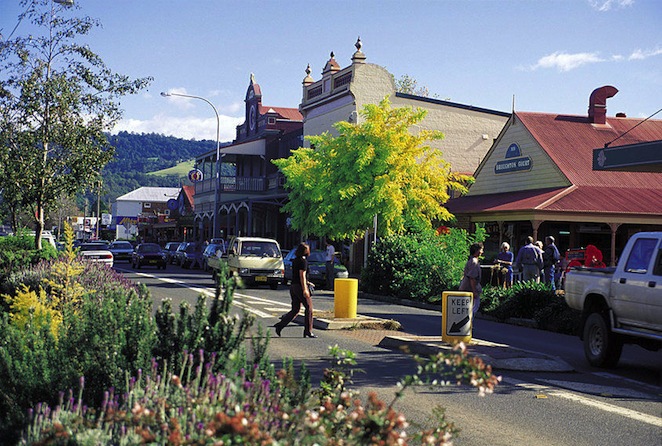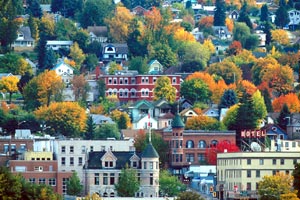Hungary
Find Eduxpress Programmes
Hungary is one of the European countries that has invested a lot into higher education, and the results are noticeable. An increasing number of internationals choose to study a Bachelor's or Master's degree at Hungarian universities.
With low tuition and living costs, it's easy to understand why. But that's not all! Universities in Hungary also have a long history of providing quality education, the oldest institution being established as early as 1367.
As an international student, you'll pay between 1,200 and 5,000 EUR per year for most study programmes at public universities. Only Medicine and Dentistry degrees can cost as much as 16,000 EUR per year.
You can further reduce your expenses by applying to one of the scholarships available in Hungary. Check if you meet the criteria, submit the necessary documents or letters, and fingers crossed!
Hungary is a beautiful country. While living and studying here, you should visit the Buda Castle, the Hungarian Parliament building, the Fisherman's Bastion, the Széchenyi Thermal Bath, St. Stephen's Basilica, the Heroes' Square, the Széchenyi Chain Bridge, etc.
There are plenty of English-taught degrees from which you can choose. To get you started, these are some of the most popular options:
The following are some of the best Hungarian universities you should consider for your studies:
Each university in Hungary has its own admission system on their website that allows future students to apply for and enrol in their Bachelor’s or Master’s degree programmes. So, once you select the university of your choice, you can go through their application and submit your materials there.
Here are some documents you might need to submit during your university application:
Since December 21, 2007, Hungary has been a member of the Schengen Area, and applies the Schengen legislation in full. The most important issues to Hungary’s Schengen membership are:
Third-country nationals are required to have a visa for entering the territory of Hungary and also for a stay of up to 90 days within a 180-day-period if they come from a country that is under visa obligation according to the Schengen acquis.
It is worth checking to see if your country has a bilateral agreement with Hungary, because in this case there is no need for a visa. If not than you are required to have a visa for entering the territory of Hungary and also for a stay of up to 90 days within a 180-days period if they come from a country that is under visa obligation according to the Schengen acquis.
The visa application has to be submitted to the Hungarian Consulate in the country where the permanent or temporary residence of the applicant is located or in the country of the applicant’s nationality. If you arrive from a third country, we recommend taking out health insurance.
Read more information about your arrival.
Public universities in Hungary are much more affordable when compared to similar institutions in Western countries. International students usually pay:
Tuition fees at private universities can be even more expensive.
There are several kinds of accommodation alternatives in Hungary:
The cheapest one should be a dormitory belonging to the students’ homes section of the university you attend. One advantage is that it is cheap (28–84 EUR or 10,000–30,000 HUF/month), it is an easy way of making friends and of establishing a social community fast.
If you decide to go with this more affordable type of housing, then you should act fast because the dormitory places are limited and vary from university to university. Check the application deadlines and methods before your arrival not to miss it.
There are also so-called private dormitories in some Hungarian cities (110–140 EUR or around 40,000–50,000 HUF/month) which do not belong to a university or a college. These are not so cheap as the institutional ones, but you can still spare some money through this way compared to private flats or rooms. It can be a plan B.
On the other hand, renting an apartment or a room in flat is a more feasible option if you prefer privacy. The costs depend much more on the fact in which city you are renting, there can be big differences between fees when it comes to Hungarian cities. The average cost is about 280 EUR (100,000 HUF) per flat, and about 140–195 EUR (50,000–70,000 HUF) per room.
Use our calculator to see your costs!
There are plenty of possibilities to access the Internet in Hungary. To help you check your e-mail or surf the net Wi-Fi access is offered in many cafés, hotels, bookstores and public buildings. Almost every university campus has its own Wi-Fi hotspots.
Hungarian cooking is actually quite difficult to define. It frequently uses paprika, black pepper and onion. Potatoes are also commonly used in many types of meal. There are two remarkable elements of Hungarian cuisine that locals take no or little notice of but which seem quite unusual to foreigners.
One is known as “f"ozelék” (various vegetables prepared in a special way, served cooked and bearing some similarity to a very thick soup) and the other one is soup itself prepared in different kinds of ways. Hungarian cuisine offers a bunch of soups from vegetables or meats or both. These soups come in creamy types, as fresh fruit soups and also as heavy meat soups.
Read more about Hungarian cuisine you’ll enjoy!
If you want to enjoy Hungarian culture, rich cultural life awaits you in every town, especially in the capital.
Calculate your living costs! Select your city, to see your financial options on accommodation, food, recreation and transport.
Here's a breakdown of other average living expenses in Hungary:
Official name: Hungary
Area: 93,030 square km
Population: 9,830,485
Neighbouring countries: Austria, Slovakia, Ukraine, Romania, Serbia, Croatia, Slovenia
Official language: Hungarian
State form: Republic
Capital and largest city: Budapest (population: 1 700 000)
Other large cities: Debrecen, Miskolc, Szeged, Pécs, Gyor
Currency: Forint (HUF)
Time zone: CET (GMT +1)
Major rivers: River Danube (417 km), River Tisza (597 km)
Largest lakes: Lake Balaton, Lake Velence
Highest point above sea level: Kékes (1014 m) in the Mátra Hills
Hungary is a member of OECD, NATO, EU and a Schengen state. Administratively, Hungary is divided into 19 counties with the capital city of Budapest being independent of any county government.
Hungary is among the top tourist destinations in Europe with the capital Budapest regarded as one of the most beautiful cities worldwide. Despite its relatively small size, the country is home to numerous World Heritage Sites, UNESCO Biosphere Reserves, the second largest thermal lake in the world (Lake Hévíz), the largest lake in Central Europe (Lake Balaton), and the largest natural grassland in Europe (Hortobágy).
The official language of the country is Hungarian, which forms part of the Finno–Ugric language family. Hungarians call their language magyar. Although Hungary is located in Central Europe, Hungarian is not related to any of the languages that surround the country. Hungarian is spoken by 10 million people in Hungary, and cca. by 4-5 million more people outside of the country.
Did you know…?



